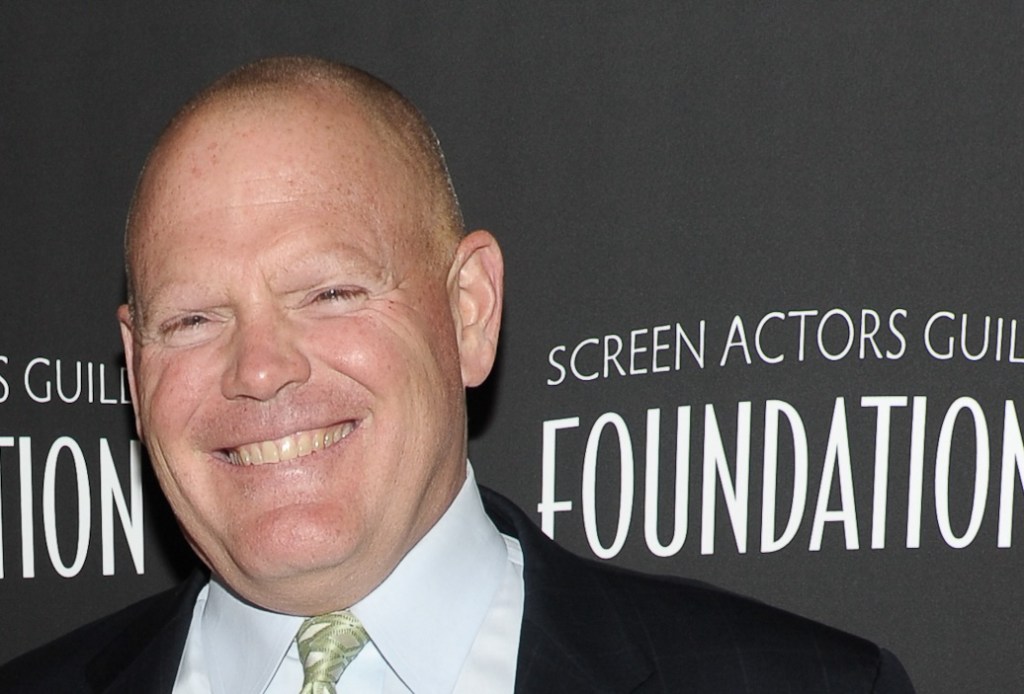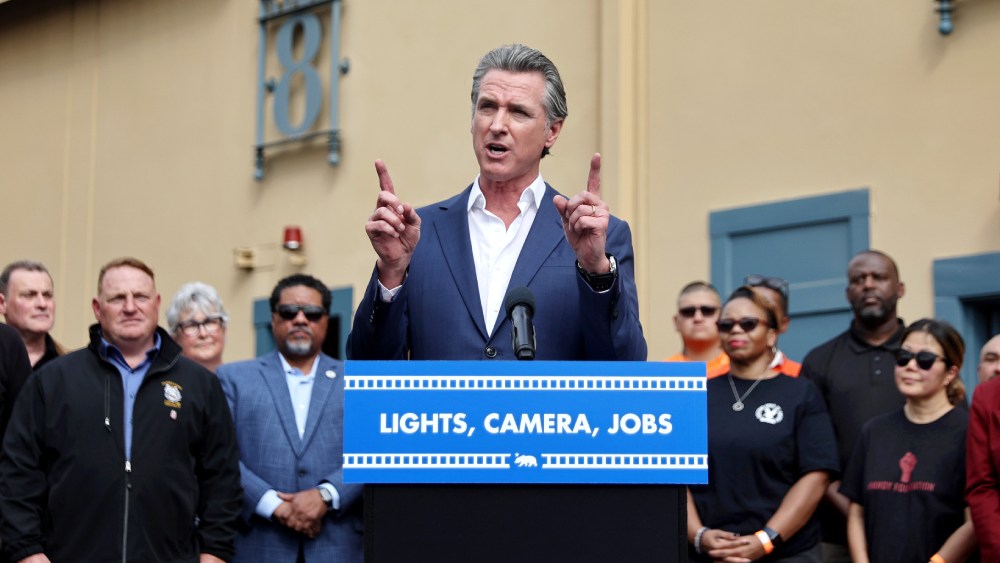Welcome Back to Production.ink, Issue #18. We write to you today with an edited reprint from our friends at Media Services one of the top entertainment payroll companies. They recently wrote about what to do if/when your production gets flipped from nonunion to a union project and we thought you'd appreciate the advice to have in your back pocket in case this happens to you.
When an independent project “flips”, transitioning from a non-union to union production, it brings a range of new challenges and opportunities. This shift introduces union production costs, from higher wages to stricter requirements, but also offers benefits such as access to a more experienced talent pool.
For producers navigating this process, understanding the financial and operational implications is crucial. An experienced and established entertainment payroll company such as Cast & Crew or Media Services plays a key role, offering expert support to ensure a smooth transition and compliance with union standards throughout the project’s journey.
What happens when a project “flips” from non-union to union status, and what does this mean for the production?
When a project “flips” from non-union to union status, it means the production, initially operating without union involvement, must adhere to union standards. This change can be triggered by various factors, such as a visit from a union representative, a crew-organized effort to unionize, or a strategic decision by producers who may secure additional funding or change the project’s scope. For instance, if a union rep from IATSE or SAG-AFTRA assesses the set and finds it meets union criteria, they might initiate the transition.
Flipping to union status introduces new requirements for payroll, contracts, and scheduling, and mandates adherence to union requirements on wages, working hours, conditions, and benefits. This shift can significantly impact production by adding new compliance needs and potentially higher costs, but it also aims to improve working conditions and ensure fair compensation for the cast and crew.

What are the financial implications of a production being flipped?
When a production “flips” to union status, the financial implications can be substantial and immediate. One of the biggest impacts is on labor costs, as union agreements typically mandate higher wages, guaranteed hours, overtime pay, and benefits like health and pension contributions.
Producers may also be required to make back payments to crew members to true-up any wage or fringe discrepancies from the non-union period. Additionally, legal and contracting expenses may increase as contracts must be renegotiated to meet union standards. These changes can cause production delays while the team adjusts to the new requirements. It is advisable to bring on experienced entertainment labor counsel to help manage the “flip” to ameliorate the downsides to this event.
Other expenses, such as increased insurance costs and the need for a completion bond, add to the financial burden. The flip can also affect production incentives eligibility, which may need to be re-evaluated. However, many of these costs may be tax-deductible or eligible for write-offs, helping offset some of the financial strain.
What are some strategies for readjusting a budget for a project that has been flipped?
When a project flips to union status, adjusting the budget effectively becomes crucial. One approach is to reallocate existing funds or trim the budget in non-essential areas to cover the increased costs associated with the transition. It’s also wise to have a contingency plan ready, ideally with a reserve fund set aside for unexpected expenses that come with unionization. Indeed, deposits may now be required by the union and/or guild which can severely impact cash flow.
Sometimes, additional financing might be necessary; this could mean seeking extra investment, applying for new grants, or financing any remaining production incentives. Being proactive and flexible with these strategies can help manage the financial impact and keep the project on track.
What is a signatory and what is the process of becoming a union signatory?
A signatory is a production company that has formally agreed to follow the rules and regulations set by a union, covering aspects like wages, working conditions, and benefits. To become a union signatory, the company first needs to negotiate and sign a contract with the union, such as IATSE or, when speed and costs are an issue, some producers utilize the services of an approved and experienced third party union signatory.
This process typically involves evaluating the budget, scope, and specific needs to choose the right union agreement that fits the project’s financial and operational requirements. For example, with IATSE, the company would work through a series of steps, from assessing the production’s details to finalizing the agreement, ensuring everything aligns with both the film’s capabilities and the union’s standards.
How does becoming a union production affect schedule, hiring, labor rules, and penalties?
Becoming a union production brings significant changes to the schedule, hiring practices, and labor rules. Union agreements enforce strict limits on work and rest hours, which can impact the production schedule and increase labor costs. These rules also specify turnaround times, dictating the minimum rest between shifts, and may impose additional restrictions on working weekends and holidays.
For hiring, the production may need to recruit only union members for certain roles, and existing crew members might have to join the union, which involves dues and adherence to union rules. While this might limit the pool of non-union candidates, it also provides access to a broader and more experienced union talent pool. Union labor rules tend to be more stringent than state or federal laws, ensuring higher standards for working conditions but also introducing the potential for penalties if regulations are not met.
Overall, while flipping to union status can lead to increased costs and scheduling complexities, it also enhances the production’s quality and crew well-being.
Working with your payroll service to support union payments and ensure compliance?
A seasoned entertainment payroll service (like Media Services) is essential for managing the complexities of union payments and compliance, especially in a flip situation where retroactive payments may be required. They ensure a smooth transition to union standards by handling payroll in accordance with union agreements, making timely and accurate payments, and facilitating overall compliance with union rules. Expert knowledge of union agreements helps navigate the intricacies of these rules.
Additionally, payroll services may provide labor advisers who may advise on becoming the union signatory process, negotiating contracts, and ongoing compliance. They also manage the calculation and payment of union wages and health and pension contributions, enhancing accuracy and reducing disputes. Finally, meticulous record-keeping by payroll services is crucial for meeting union standards and is helpful during audits or disputes.
Flipping the script
Navigating the shift from a non-union to a union production can be tricky, but understanding the essentials makes it easier. Flipping to union status brings new financial and scheduling challenges but also benefits like a more experienced crew and better working conditions. To handle this transition smoothly, it’s key to adjust your budget, understand union rules, and rely on expert payroll services. With the right planning and support, you can successfully manage the flip and set your project up for success.








Studio 99, the production company co-founded by David Beckham, has appointed Jessica Ludgrove as vice president of production.
Lionsgate ups Joel Meyer to Head Worldwide Production
Searchlight brings on former Lucasfilm executive Rayne Roberts as SVP, Production and Development
Concord Originals has upped Wesley Adams to Vice President of Production and Distribution (formerly Director of Development and Production).
Sylvester Stallone‘s Balboa Productions has brought on D. Matt Geller as its Head Of Development & Production.
Pablo creator Paper Owl Films has appointed Nora Keely as head of production.
Thanks for reading. See you soon. - The Production.ink team

Physical Address: 367 St. Marks Avenue, Suite 765, Brooklyn, NY 11238







